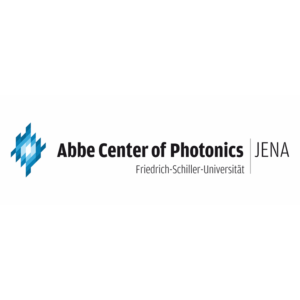
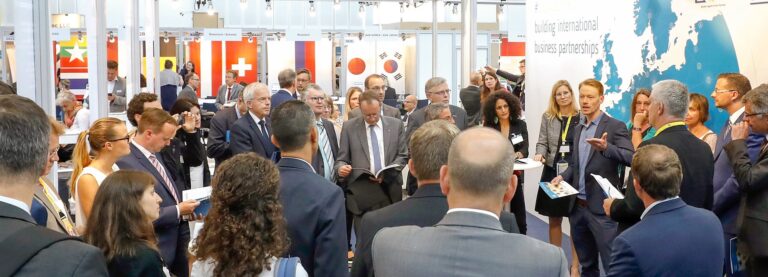
Create a supportive and flourishing environment for your company and the quantum community by joining our public policy and community activities.
Create a supportive and flourishing environment for your company and the quantum community by joining our and community and lobbying activities.
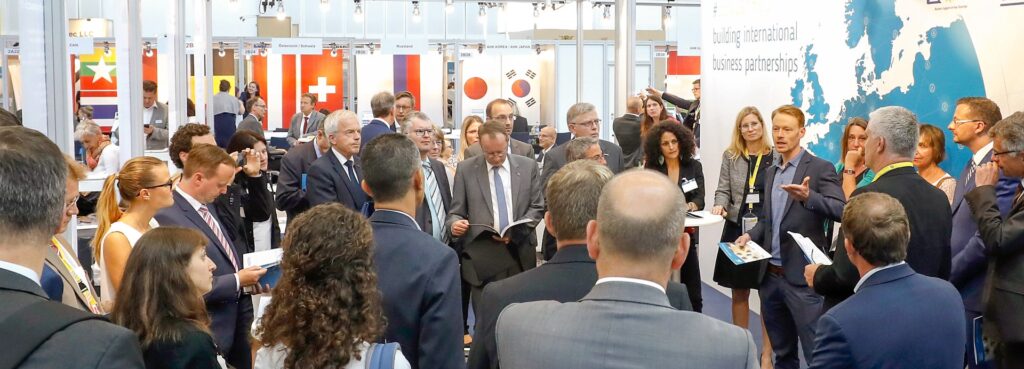
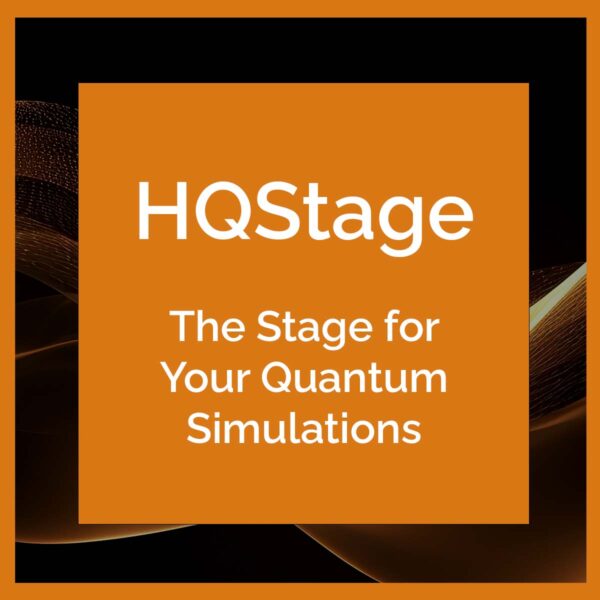
HQS Quantum Simulations, a leading provider of quantum simulation software, proudly presents HQStage, a powerful modular cloud-supported toolkit designed to meet the simulation needs of developers and researchers in quantum physics and chemistry. HQStage offers 10 powerful simulation modules, intuitive management tools and the flexibility to combine local and cloud computing. HQS is proud to present HQStage, the stage for your quantum simulations: HQStage is designed to provide scientists and software developers with a flexible and powerful programming environment for the simulation of quantum systems on various platforms such as laptops, workstations, HPC centres and quantum computers. With HQStage, HQS Quantum Simulations introduces cutting-edge Modules for quantum computing and materials simulation at the quantum level, called HQStage Modules. 10 powerful HQStage Modules, categorised into Easy Input, Simulation, Model Analysis and Quantum Computing, are tailored to explore a wide range of quantum systems. Each module addresses specific challenges and provides researchers with exceptional power and flexibility. Building on the unique approach of simulating open quantum systems, the HQStage Modules unlock the potential of quantum computation on NISQ devices, paving the way for groundbreaking discoveries in fields such as chemistry and pharmaceuticals. Through HQStage you can access two easy to use modules for quantum computing: The HQS Qorrelator App: This module has been created to simulated spectroscopy on a quantum computer. You can define your own specific correlation functions to read out or use e.g. the end-to-end implementation to calculation NMR spectra. The HQS Noise App: A unique tool to use quantum computers to simulate open quantum systems. Dr. Michael Marthaler, CEO and Co-Founder of HQS, notes, “Besides the Modules for quantum computing we in particular want to highlight the HQS Spin Mapper, a module which we also accompany with a publication of several papers.” Deepening Understanding through Published Papers HQS Quantum Simulations is committed to providing robust software tools, coupled with comprehensive theoretical insights. HQS has published a series of papers that explain in detail the theories on which the software is based. These papers contain detailed explanations and examples, enabling researchers to delve into the intricacies of quantum simulation and gain a comprehensive understanding of the relevant concepts. “Demonstration of system-bath physics on gate-based quantum computer”, related to HQS Noise App, https://arxiv.org/abs/2404.18828 “The impact of noise on the simulation of NMR spectroscopy on NISQ devices”, related to HQS Qorrelator App, https://arxiv.org/abs/2404.18903 “Understanding Radicals via Orbital Parities”, related to HQS Spin Mapper, https://arxiv.org/abs/2404.18787 “Efficient Random Phase Approximation for Diradicals”, related to new ideas how to solve Multi reference problems which could connect to quantum computing in an interesting way, https://arxiv.org/abs/2404.18691 A method to derive material-specific spin-bath model descriptions of materials displaying prevalent spin physics (for Simulation on NISQ devices), White Paper related to HQS Spin Mapper, https://quantumsimulations.de/publications/white-paper-hqs-spin-mapper Requirements and Handling of HQStage To use HQStage, you just need Python installed on your computer and a free user account on the HQS Cloud platform. From this centralized SaaS platform users can effortlessly manage their HQStage Modules, licenses, subscriptions, and compute resources. HQStage Modules typically work on 64-bit systems with the latest versions of Linux, Windows, and the latest version of MacOS on ARM architectures. To facilitate seamless integration and handling of HQStage and its Modules, HQS provides a robust command line interface (CLI). The HQStage CLI aims to streamline the process of accessing HQS-developed software across various systems, eliminating the need for extensive manual setup. Key Features of HQStage Intuitive Cloud-Based Management: Seamlessly oversee licenses, modules, compute resources, and user access via an intuitive cloud interface. Command Line Tool: Create and manage virtual Python environments with automatic dependency management, facilitating easy installation of HQStage Modules alongside other Python packages. Seamless Updates: HQStage Modules are automatically updated, ensuring researchers have access to the latest features and improvements. Dr. Sebastian Zanker, CTO and Co-Founder of HQS, states, “To fully exploit the power of quantum simulation a complex interaction of many simulation tools and computational hardware platforms is necessary. That is why we are proud to present our modular simulation toolkit HQStage, which does not only provide unique modules created by HQS but can also be interfaced with any software that can be controlled via python.” Further information https://quantumsimulations.de/solutions HQS Cloud: https://cloud.quantumsimulations.de/ HQStage Documentation: https://docs.dev.cloud.quantumsimulations.de/introduction.html HQS Scientific Paper: https://quantumsimulations.de/publications About HQS Quantum Simulations HQS Quantum Simulations represents a new era in quantum simulation. We harness the potential of quantum mechanics to develop innovative industrial applications. Our solutions are based on innovative approaches to accurate and efficient material prediction and analysis at the quantum level. HQS software is used in the pharmaceutical and chemical industries, as well as in the development and research of quantum computers, sensors, optical components, and laser applications. Press Contact Dr. Michael Marthaler CEO and Co-Founder press@quantumsimulations.de HQS Quantum Simulations GmbH Rintheimer Straße 23 A 76131 Karlsruhe www.quantumsimulations.de
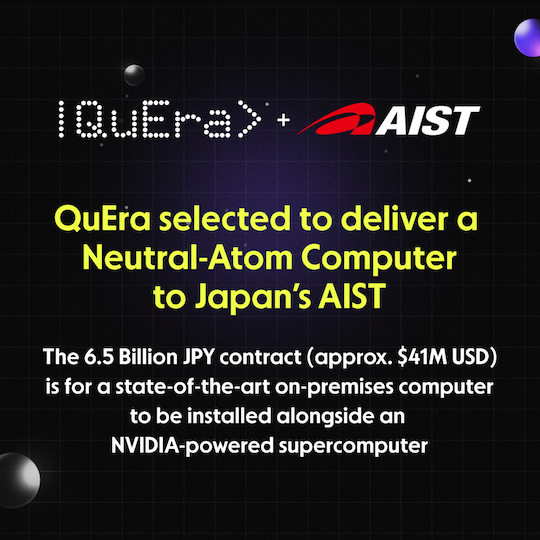
Boston, Mass. Apr 30, 2024 — QuEra Computing, a global leader in neutral-atom quantum computing technology, today announced it has been awarded a 6.5 Billion JPY contract (approx. $41M USD) by Japan’s National Institute of Advanced Industrial Science and Technology (AIST) to deliver a state-of-the-art quantum computer, advancing quantum capabilities in Japan. This computer will be installed on-premises alongside the NVIDIA-powered ABCI-Q supercomputer. This strategic initiative aims to develop a powerful hybrid quantum-classical computing platform, where QuEra’s unique quantum computing technology complements AIST’s ABCI-Q supercomputer with the ultimate goal of creating a hybrid platform for high-fidelity simulations and quantum AI applications. QuEra’s gate-based neutral-atom quantum computers are known for their unique scale, fidelity, and upcoming quantum error detection and correction abilities. Neutral-atom computers are a highly-promising quantum modality, offering a clear path to large-scale, fault-tolerant computers. QuEra leads the neutral-atom market, offering dynamic qubit manipulation (qubit shuttling), enabling flexible and efficient quantum computations. QuEra’s computers operate at room temperature and can readily integrate with classical computing infrastructure. QuEra’s gate-based computer is scheduled for on-premises installation in 2025. QuEra already has significant expertise in operating quantum computers, as its first-generation 256-qubit computer has been available on a major cloud service since November 2022, providing global access to advanced quantum computing capabilities. QuEra was also recently awarded a contract to deliver a quantum testbed to the UK’s national quantum program. AIST’s NVIDIA-powered ABCI-Q will enable large-scale high-fidelity quantum simulations as well as quantum accelerated supercomputing, for research across industries. The high-performance, scalable system is integrated with NVIDIA CUDA-Q, an open-source hybrid quantum computing platform. The supercomputer is powered by more than 2,000 NVIDIA H100 Tensor Core GPUs in 500+ nodes interconnected by NVIDIA Quantum-2 InfiniBand. ABCI-Q is part of Japan’s quantum technology innovation strategy, which aims to create new opportunities for businesses and society to benefit from quantum technology, including through research in AI, energy and biology. The ABCI-Q system is intended to be a platform for the advancement of quantum circuit simulation and quantum machine learning, the building of classical-quantum hybrid systems, and the development of new algorithms inspired by quantum technology. Takuya Kitagawa, President of QuEra, remarked, “We are honored that AIST has chosen our technology for installation in Japan. This partnership highlights our mutual dedication to advancing science and technology, setting new standards in computational research with a focus on quantum and AI applications. We are excited about working with Japanese entities and companies on new horizons with quantum computing.” “The integration of quantum computers with GPU supercomputing is a key milestone to unlock the potential of quantum computing to accelerate scientific discovery”, said Tim Costa, director of high-performance computing and quantum computing at NVIDIA. “QuEra’s system positioned alongside ABCI-Q and powered by CUDA-Q represents a pioneering leap forward in this regard, enabling the development of cutting edge hybrid applications and quantum research and development.” Masahiro Horibe, Deputy Director of G-QuAT/AIST, stated, “Installing QuEra’s cutting-edge technology alongside our existing computing infrastructure is a crucial step in Japan’s quantum initiatives. This collaboration will enhance our computational capabilities and drive the development of practical applications in fields like AI, energy, and biology.” About QuEra QuEra Computing is the leader in commercializing quantum computers using neutral atoms—widely recognized as a highly promising quantum modality. Based in Boston and built on pioneering research from nearby Harvard University and MIT, QuEra operates the world’s largest publicly accessible quantum computer, available over a major public cloud and for on-premises delivery. QuEra is developing large-scale, fault-tolerant quantum computers to tackle classically intractable problems, becoming the partner of choice in the quantum field. Simply put, QuEra is the best way to quantum. For more information, visit us at quera.com and follow us on Twitter or LinkedIn. About AIST The National Institute of Advanced Industrial Science and Technology (AIST), headquartered in Tokyo, Japan, is one of the country’s largest public research organizations. AIST dedicates itself to bridging innovative technological seeds with commercial applications, enhancing industry and societal welfare. For further information, please contact: Merrill Freund press@quera.com +1-415-577-8637
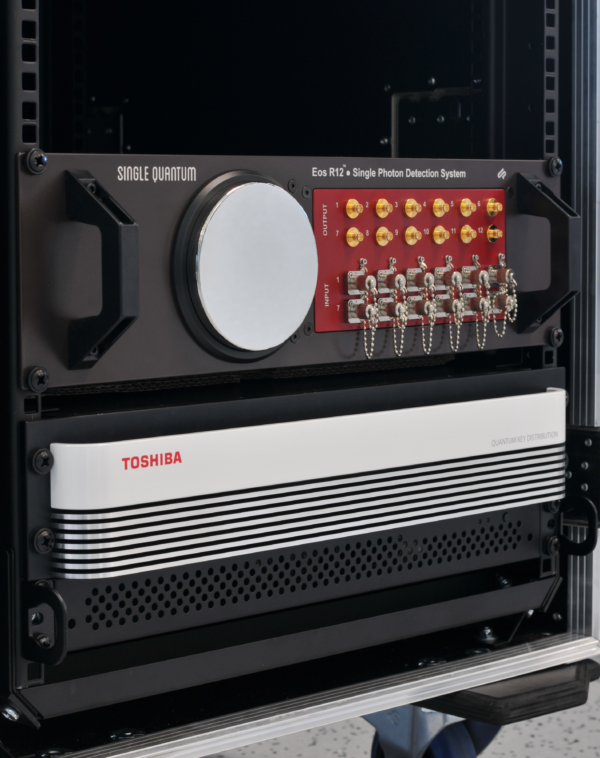
Cambridge, United Kingdom / Delft, Netherlands, 22nd April 2024: Toshiba Europe Ltd. and Single Quantum B.V. have collaborated to test and validate long-distance deployments of Quantum Key Distribution (QKD) technology. Following extended validation testing of Toshiba’s QKD technology and Single Quantum’s superconducting nanowire single photon detectors (SNSPDs), both companies are pleased to announce a solution that substantially extends the transmission range for QKD deployment over fibre connections, up to and beyond 300km. QKD uses the quantum properties of light to generate quantum secure keys that are immune to decryption by both high performance conventional and quantum computers. Toshiba’s QKD is deployed over fibre networks, either coexisting with conventional data transmissions on deployed ‘lit’ fibres, or on dedicated quantum fibres. Toshiba’s unique QKD technology can deliver quantum secure keys in a single fibre optic link at distances of up to 150km using standard integrated semiconductor devices. Achieving longer distance QKD fibre transmission is challenging due to the attenuation of the quantum signals along the fibre length, (the optical loss of the fibre link). To provide extended QKD transmission, operators typically concatenate fibre links together with trusted nodes along the fibre route which house QKD systems that relay the secret keys. The use of multiple trusted nodes may not be practical or desirable along certain networks, such as marine fibre links, cross-border fibre optic links and terrestrial links in locations where suitable buildings cannot be found, such as in remote areas. To address this challenge, Toshiba and Single Quantum have worked together to validate the performance of Single Quantum’s revolutionary SNSPDs working with the Toshiba QKD systems. Single Quantum’s SNSPDs can detect single photons very accurately and efficiently over higher optical loss fibre links, significantly extending the QKD transmission distance over a single fibre optic link. Toshiba and Single Quantum are able to extend the range QKD transmission from 150km to distances of 300km+, with the low noise and high detection efficiency of Single Quantum’s SNSPDs mitigating the challenges that come with detecting QKD signals over higher loss fibre links. Further to extending the range of a single QKD link, the superior performance of the Toshiba QKD equipment combined with the unparalleled photon detection rate of the Single Quantum SNSPD’s helps enable market leading secret key rate performance – Figure 1 shows the system performance over a wide range of optical losses along with the performance across a 300km fibre link. In addition to validating the capability of extended range fibre QKD deployment, Toshiba and Single Quantum are providing a solution for extended long distance QKD transmission over a single fibre link by integrating Single Quantum’s SNSPDs with Toshiba’s QKD technology in a compact, stackable and rack mountable solution. “Forward-thinking organisations are already deploying QKD on networks to protect their data from the risk posed by quantum computers,” said Dr Andrew Shields, Head of the Toshiba Quantum Technology Division. “As more and more people use QKD, it’s important that we’re able to implement it efficiently at scale. The ability to provide users with long-distance networks, without the need for additional infrastructure to link together different nodes, is vital for ensuring that quantum-secure communications are accessible and effective. Collaborating with Single Quantum has shown this is possible, and we look forward to continuing our work in future.” Jessie Qin-Dregely, COO of Single Quantum, commented on the exciting results of this partnership with Toshiba, “Quantum technology has huge potential to revolutionise a wide range of sectors from security to telecommunications, through technologies such as QKD, quantum computing, and quantum networking. Yet, for each application, there are still challenges to overcome before we can fully harness the power that quantum technology has to offer. The collaboration between Toshiba and Single Quantum shows how quantum companies can work together to achieve the goal of overcoming a crucial challenge.” For more information on Toshiba’s QKD services and quantum technology offerings, please visit: https://www.toshiba.eu/quantum/ To learn more about Single Quantum and superconducting nanowire single photon detectors, please visit: https://www.singlequantum.com/ About Toshiba Toshiba Corporation leads a global group of companies that combines knowledge and capabilities from almost 150 years of experience in a wide range of businesses—from energy and social infrastructure to electronic devices—with world-class capabilities in information processing, digital and AI technologies. These distinctive strengths support Toshiba in building infrastructure that everyone can enjoy, and a connected data society, and in achieving the Company’s ultimate goal, a future that realizes carbon neutrality and a circular economy. Guided by the Basic Commitment of the Toshiba Group, “Committed to People, Committed to the Future,” Toshiba contributes to society’s positive development with services and solutions that lead to a better world. The Group and its 110,000 employees worldwide secured annual sales of 3.4 trillion yen (US$25.1 billion) in fiscal year 2022. Find out more about Toshiba at www.global.toshiba/ww/outline/corporate.html About Single Quantum Founded in 2012 in Delft, the Netherlands, Single Quantum was the first European company to develop and commercialize superconducting nanowire single photon detectors. Since then, the Single Quantum Eos superconducting nanowire photon detection system has been chosen by more than 250 academic and industrial labs all over the world. Single Quantum’s mission is to make the world’s fastest and most sensitive light sensors limited only by the laws of physics. Find out more about Single Quantum at https://www.singlequantum.com/about-us/
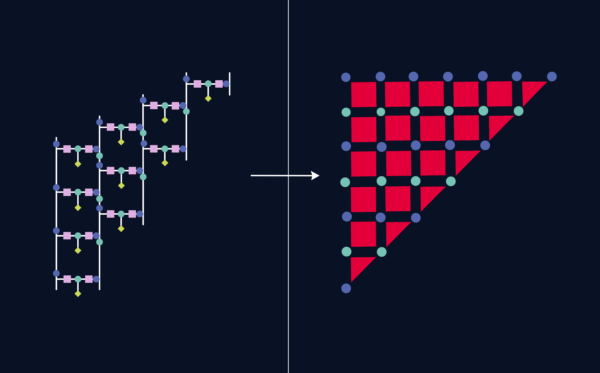
Innsbruck and Aachen, 19 March 2024 – A group of physicists from ARQUE Systems and ParityQC present a version of the ParityQC Architecture specifically for quantum computers based on sparse grids of spin qubits. This quantum computing architecture represents an important step forward for the advancement of spin qubits as a quantum computing platform, efficiently harnessing their advantages such as fast timescales and small size. This invention has been outlined in the paper “Scalable Parity Architecture With a Shuttling-Based Spin Qubit Processor”, out now on arXiv as a pre-print. ARQUE Systems and ParityQC have recently collaborated to develop an efficient quantum computing architecture specific for quantum computers based on spin qubits. In the preprint “Scalable Parity Architecture With a Shuttling-Based Spin Qubit Processor”, the authors (Florian Ginzel, Michael Fellner, Christian Ertler, Lars R. Schreiber, Hendrik Bluhm and Wolfgang Lechner) present the results of this joint research: a novel implementation of the ParityQC Architecture for semiconductor spin qubits. Among the several physical platforms for quantum computing that are currently being investigated worldwide, one platform that has emerged is semiconductor spin qubits in gate-defined quantum dots (QDs). ARQUE Systems, a spin-off of Forschungszentrum Jülich and RWTH Aachen University, is currently developing and commercializing quantum devices based on this promising platform. Spin qubits possess several important qualities that make them a promising platform for quantum computing: they have long coherence times, very fast gate times, a small size and a high scalability potential. In addition, the fabrication of quantum computers based on spin qubits could be relatively easy, making use of the sophisticated manufacturing capabilities of the semiconductor industry. However, as with all quantum computing platforms, there are also specific challenges to overcome, including for example environmental electric noise and cross-talk among qubits. These challenges represented the starting point for the collaboration between ARQUE Systems and the quantum architecture company ParityQC. A group of physicists from the two companies engaged in joint research, with the aim of developing architectures that advance the use of spin qubits for quantum computing while harnessing their unique advantages. The proposal successfully combines ARQUE’s unique approach to spin shuttling (coherently moving the qubits in the chip on demand) with the ParityQC framework for solving optimization problems on quantum computers. The paper explores the implementation and performance of the Parity Quantum Approximate Optimization Algorithm – QAOA (a gate-based algorithm for solving combinatorial optimization problems on a digital quantum computer) on two different architectures: a sparse spin bus architecture and a modular architecture with minimal registers. The authors develop gate sequences and an error model for each architecture and proceed to compare the performances. Realistic errors were considered, and it was found that both architectures can complete one round of Parity QAOA with a low singlequbit error probability, with the spin bus architecture slightly outperforming the modular architecture. The physical errors of both architectures were found to be low enough to decode the final state with a high success probability, implying that the architecture has an intrinsic potential for quantum error mitigation. Overall, the findings in the paper represent a substantial step forward in the development of scalable architectures for quantum computing using spin qubits, a field that has been relatively unexplored in current literature. The research topic will continue to be explored in the ongoing collaboration between ARQUE Systems and ParityQC, two spin-offs that combine a strong background in fundamental research with its practical development and commercialization. Publication: • Florian Ginzel, Michael Fellner, Christian Ertler, Lars R. Schreiber, Hendrik Bluhm, Wolfgang Lechner. Scalable Parity Architecture With a Shuttling-Based Spin Qubit Processor. arXiv:2403.09574 (2024) About ParityQC ParityQC is a spin-off of the University of Innsbruck and the only quantum architecture company worldwide. The company’s focus is on developing blueprints and operating systems for quantum computers. ParityQC collaborates with hardware partners all over the world to jointly build quantum computers for applications ranging from solving optimization problems on NISQ devices to general-purpose, error-corrected quantum computing. About ARQUE Systems ARQUE Systems is a spin-off of Forschungszentrum Jülich and RWTH Aachen University. The founders of ARQUE have decades of experience with semiconductor qubit technology. ARQUE’s mission is to develop and commercialize Quantum Computing systems reaching far beyond current capabilities based on electron spins in silicon. Contact Erika Bettega Marketing & Communications ParityQC e.bettega@parityqc.com / +39 333 2881645
There are currently no vacancies.

Bringing together end-users and developers with suppliers and integrators in a trust-based environment creates the perfect foundation for valuable business and collaboration opportunities

Bringing together end-users and developers with suppliers and integrators in a trust-based environment creates the perfect foundation for valuable business and collaboration opportunities